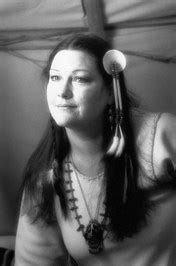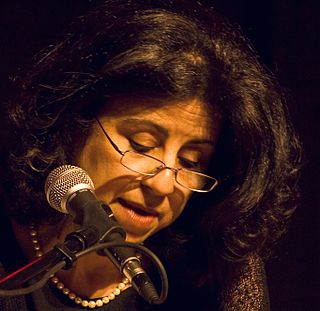A Quote by Andrew Harvey
The Mother's knowledge of unity, her powers of sensitivity, humility, and balance, and her infinite respect for the miracle of all life have now to be invoked by each of us and practiced if the 'masculine' rational imbalance of our civilization is to be righted before its too late.
Related Quotes
Coming into contact with the Mother is coming into contact with a force of passionate and active compassion in every area and dimension of life, a force that longs to be invoked by us to help transform all the existing conditions of life on earth so that they can mirror ever more clearly and accurately her law, her justice, and her love.
As we heal, the Earth Mother feels our joy. We are like cells in and on her body. The power of love, the power of healing, the power of compassion, the power of unity, and the power of knowing are our abilities. These are the gifts our Earth Mother seeks to share with us at this time. Through reconnecting to the celebration of life we are able to let go of our grief and fear. When we Walk in Beauty, we acknowledge every aspect of the Self. The Power Places of our planet are those that have seen the joy of our Earth Mother when her children have grown toward wholeness, celebrating life.
Christianity only hopes. It has hung its harp on the willows, and cannot sing a song in a strange land. It has dreamed a sad dream, and does not yet welcome the morning with joy. The mother tells her falsehoods to her child, but, thank heaven, the child does not grow up in its parent's shadow. Our mother's faith has not grown with her experience. Her experience has been too much for her. The lesson of life was too hard for her to learn.
She was like me in lineaments-- her eyes Her hair, her features, all, to the very tone Even of her voice, they said were like to mine; But soften'd all, and temper'd into beauty; She had the same lone thoughts and wanderings, The quest of hidden knowledge, and a mind To comprehend the universe: nor these Alone, but with them gentler powers than mine, Pity, and smiles, and tears-- which I had not; And tenderness-- but that I had for her; Humility-- and that I never had. Her faults were mine-- her virtues were her own-- I loved her, and destroy'd her!
I think we spend a lot of time denying our mothers. We understand other women earlier than we understand our mothers because we're trying so hard to say, "I'm not going to be like my mother" that we blame her for her condition. If we didn't blame her for her condition, we would have to admit that it could happen to us, too. I spent a long time doing that, thinking that my mother's problems were uniquely her fault.
The world is too much with us; late and soon, Getting and spending, we lay waste our powers: Little we see in Nature that is ours; We have given our hearts away, a sordid boon! The Sea that bares her bosom to the moon; The winds that will be howling at all hours, And are up-gathered now like sleeping flowers; For this, for everything, we are out of tune.
My mother has made choices in her life, as we all must, and she is at peace with them. I can see her peace. She did not cop out on herself. The benefits of her choices are massive-a long, stable marriage to a man she still calls her best friend; a family that has extended now into grandchildren who adore her; a certainty in her own strength. Maybe some things were sacrificed, and my dad made his sacrifices, too-but who amongst us lives without sacrifice?
All her knowledge is gone now. Everything she ever learned, or heard, or saw. Her particular way of looking at Hamlet or daisies or thinking about love, all her private intricate thoughts, her inconsequential secret musings – they’re gone too. I heard this expression once: Each time someone dies, a library burns. I’m watching it burn right to the ground.
All of us--all who knew her--felt so wholesome after we cleaned ourselves on her. We were so beautiful when we stood astride her ugliness. Her simplicity decorated us, her guilt sanctified us, her pain made us glow with health, her awkwardness made us think we had a sense of humor. Her inarticulateness made us believe we were eloquent. Her poverty kept us generous. Even her waking dreams we used--to silence our own nightmares.

































